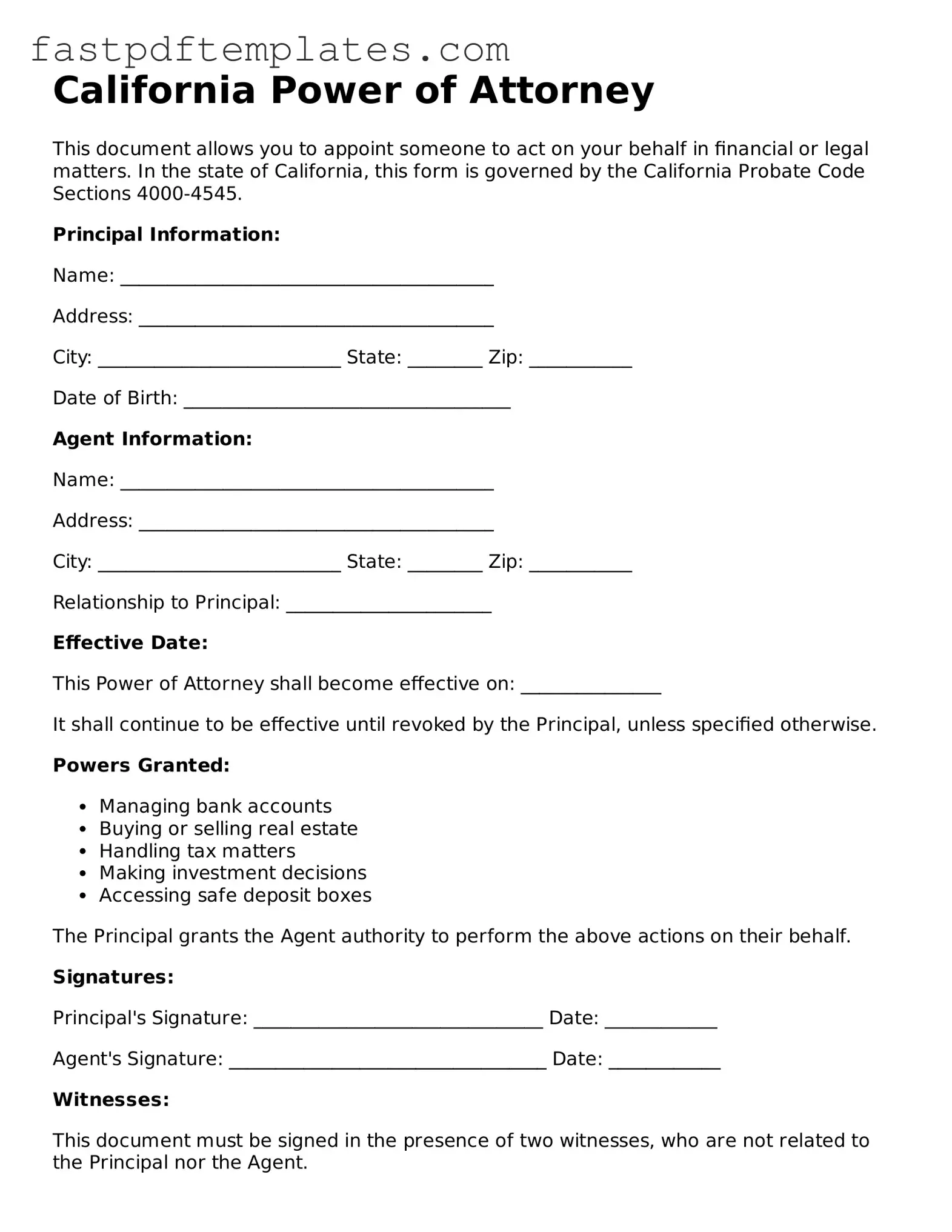Attorney-Approved California Power of Attorney Document
The California Power of Attorney form is a legal document that allows an individual, known as the principal, to designate another person, referred to as the agent, to make decisions on their behalf. This form is essential for ensuring that personal, financial, or medical matters are handled according to the principal's wishes, especially in situations where they may be unable to act for themselves. Understanding the nuances of this form can empower individuals to take control of their future and safeguard their interests.
Access Document

Attorney-Approved California Power of Attorney Document
Access Document
Your form still needs completion
Complete your Power of Attorney online and download the final PDF.
Access Document
or
Click for PDF Form
